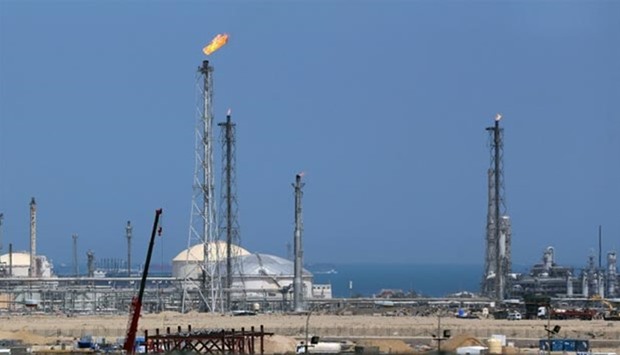* Kuwait says Opec discussing extending output cuts
* Russian energy minister says cut output by 200,000 bpd in March* Libyan oil production down more than 250,000 bpd
* North Dakota pipeline expected to hasten US shale revival
Oil prices jumped for a third day on Thursday to their highest in three weeks after Kuwait gave its backing for an extension of Opec production cuts in an attempt to reduce global oversupply.
Kuwait oil minister Essam al-Marzouq said his country was among several nations supporting the extension into the second half of the year of a deal between the Organisation of the Petroleum Exporting Countries and other exporters to limit production, state news agency KUNA reported.
Opec agreed to reduce its oil production by 1.2mn barrels per day during the first six months and so far, output has fallen for a third straight month and members have now complied with 95% of their commitments.
"I see no sign from Opec and Saudi Arabia that they will not roll over the cut into the second half of the year ... the market is about to go from supply surplus to deficit on crude " said Scott Shelton, energy futures broker with ICAP in Durham, North Carolina.
Other oil exporters outside Opec, including Russia, have also gradually reined in production.
Russia has reduced its output by 200,000 bpd in March in accordance with the agreement, the ministry quoted Energy Minister Alexander Novak as saying in a TV interview.
Brent crude oil rose 52 cents, or about 1%, to $52.94 a barrel by 11:47 a.m. EDT (1547 GMT), after hitting $53.10, the highest level since March 9.
US crude was 82 cents, or 1.7%, higher at $50.33 a barrel, after touching $50.46, the loftiest since March 9.
Both crude benchmarks have rebounded from last week's four-month lows, partly after Libyan production dropped by about a third or 250,00 bpd earlier this week due to armed protesters blocking the western oilfields of Sharara and Wafa.
But fears of oversupply still hang over the market as Opec grapples to tighten the oil market because inventories in many parts of the world are at, or near record highs and as US production rises.
The start-up of a 500,000 bpd crude pipeline in North Dakota next month, despite opposition by environmental groups and Native Americans, is expected to hasten a revival in output from the Bakken region which fell sharply along with global oil prices during the past two years.
The market appeared to be searching for a new trading range, brokers said.
"There is a significant chance that a short-to-medium-term bottom has been found," said Tamas Varga, analyst at London brokerage PVM Oil Associates.

